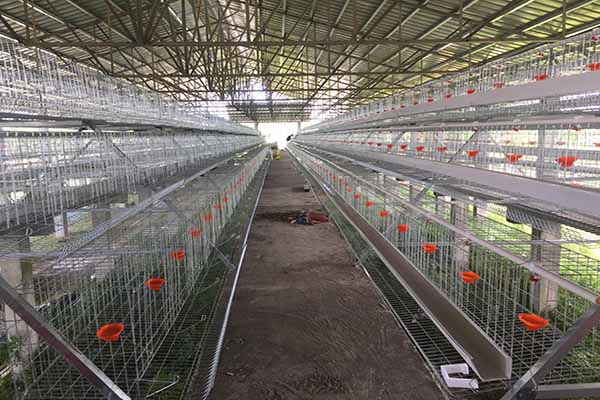How to Start a Chicken Farm in Kenya: A Guide for Aspiring Poultry Farmers from Livi Machinery
Time : 2025-07-26
If you’re dreaming of starting a chicken farm in Kenya, you’ve come to the right place. As a leading manufacturer of poultry equipment from China, Livi Machinery is here to guide you through the process of setting up a successful chicken farm. In this comprehensive guide, we’ll cover everything from choosing the right location to selecting the right equipment. Let’s dive in!
Choosing the Right Location
The first step in starting a chicken farm is to choose the right location. Here are some key factors to consider:
Climate
Kenya has a diverse climate, so it’s essential to choose a location that suits the type of chicken you want to raise. For instance, if you’re planning to raise broiler chickens, you’ll need a location with a temperature range between 16°C and 24°C.
Accessibility
Choose a location that is easily accessible to suppliers and customers. This will help you maintain efficient operations and reduce transportation costs.
Water Availability
Water is crucial for chicken farming, so ensure that the location has a reliable water source. Good drainage is also essential to prevent diseases.
Zoning Laws
Check local zoning laws to ensure that poultry farming is allowed in the area you have chosen.
Selecting the Right Chicken Breed
The next step is to select the right chicken breed for your farm. Here are some popular chicken breeds in Kenya:
Broiler Chickens
Broiler chickens are bred for meat production and reach market weight in about 6-8 weeks. They require less space and are easy to manage.
Layer Chickens
Layer chickens are bred for egg production and can lay eggs for up to 5 years. They require more space than broiler chickens but produce a steady income from egg sales.
Dual-Purpose Chickens
Dual-purpose chickens are bred for both meat and egg production. They are slower-growing than broiler chickens but can provide a steady income throughout their lifetime.
Building Your Chicken House
The next step is to build your chicken house. Here are some key considerations:
Size
The size of your chicken house depends on the number of chickens you plan to raise. As a general rule, provide 0.4 square meters of space per chicken.
Design
Your chicken house should be well-ventilated and protected from predators. Consider using a roof with an overhang to provide shade and protect the chickens from rain.
Floor
The floor should be easy to clean and disinfect. Concrete or slatted floors are popular choices.
Selecting the Right Equipment
Now that you have your location and chicken house, it’s time to select the right equipment. Here are some essential poultry equipment you’ll need:
Feeders and Waterers
Automatic feeders and waterers ensure that your chickens have access to food and water at all times. This promotes healthy growth and egg production.
Brooders
Brooders provide heat for newborn chicks, helping them to maintain their body temperature. They can be used for broiler chickens and layer chickens until they reach 6-8 weeks of age.
Egg Collectors
Egg collectors help you collect eggs efficiently and maintain a clean and hygienic environment. They are available in various sizes and configurations.
Incubators
Incubators are essential for hatching chicks. They provide the ideal temperature, humidity, and ventilation for hatching eggs.
Equipment from Livi Machinery
At Livi Machinery, we offer a wide range of high-quality poultry equipment designed to meet the needs of chicken farmers in Kenya. Our products include:
– Automatic feeders and waterers
– Brooders
– Egg collectors
– Incubators
– Slatted floors
– Chicken coops
Farm Management
Once your chicken farm is up and running, it’s crucial to manage it effectively. Here are some key tips:
Feeding and Watering
Provide a balanced diet and clean water to your chickens. Monitor their intake and adjust the amount of feed and water as needed.
Health and Vaccination
Regularly check the health of your chickens and vaccinate them against common diseases. Consult with a veterinarian for advice on health management.
Egg Collection
Collect eggs regularly to maintain a clean and hygienic environment. Store eggs in a cool, dry place until they are ready for sale.
Record Keeping
Keep detailed records of your farm’s operations, including feed consumption, egg production, and health issues. This will help you make informed decisions and improve your farm’s efficiency.
Conclusion
Starting a chicken farm in Kenya can be a rewarding venture. By following this guide and choosing the right equipment from Livi Machinery, you’ll be well on your way to a successful poultry farming operation. Good luck!












